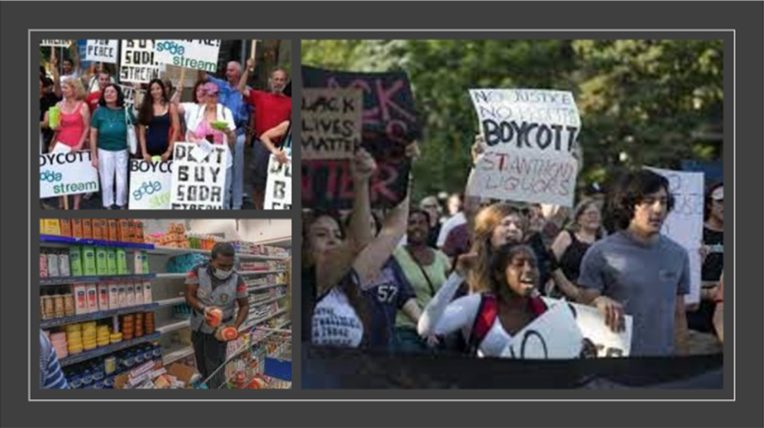Hi There,
In the complex and rapidly changing world of global politics, many consumers are using their purchasing power to express their opinions. Recently, we’ve seen a significant increase in the boycott of numerous renowned brands, due to their alleged associations with or support for Israel’s military actions against Palestine. This movement is gaining momentum, with people across the globe using social media platforms to amplify their voices and stand in solidarity with Palestine. They are urging others to rethink their spending habits, encouraging the boycott of these brands until they sever ties with Israel or publicly condemn the actions taken. This consumer-led campaign goes beyond mere online activism; it represents a shift in the way consumers choose to interact with brands, emphasizing not just the quality of products, but the ethical implications behind their purchases. This change is not just a fleeting trend but a critical aspect that brands must consider in their public relations and marketing strategy now and in the future.
The integration of politics and business is not a new phenomenon, and brands associating with political parties or alliances has been a long-standing practice. This association can be a double-edged sword, offering unique advantages while also posing significant risks. The impact of political choices on brand reputation can be profound, and regaining customer trust after a political misstep can be a challenging endeavor.
Aligning a brand with a political ideology can have its advantages. It can help brands establish a clear identity, appeal to a specific target market, and build a loyal customer base. For instance, the outdoor clothing brand Patagonia has publicly associated itself with environmental activism and progressive politics, successfully attracting a customer base that shares these values.
However, the risks associated with this strategy can be severe. Brands can alienate consumers who hold opposing political views, and political climates can change rapidly, leading to a sudden shift in public sentiment. For instance, In Malaysia just recently, there happened mounting call for boycott to Grab after CEO’s wife seen to be sympathetic to Israel. Other examples of brands that openly supported the Brexit campaign faced backlash from consumers who voted to remain in the EU. Additionally, political alignment can lead to a perceived loss of neutrality, and consumers may question the brand’s motivations and integrity.
The decision to associate a brand with politics is not made lightly. Brands often do so to align with their core values and principles, connect with like-minded consumers, and influence societal change. However, the importance of such associations can vary greatly depending on factors such as the brand’s target market, industry, and geographic location.
When a brand’s political alignment leads to controversy or backlash, it is crucial to take quick and decisive action to regain customers’ trust. Transparency, sincere apologies, and concrete actions to address the issue are key. For example, the Uber boycott in 2017, following the company’s perceived support for Trump’s immigration policies, led to a significant loss of customers. The company responded by pledging a substantial donation to support immigration rights groups and issuing a public apology, which helped to restore some of the lost trust.
Several brands have suffered due to their political associations. Chick-fil-A, an American fast-food chain, faced significant backlash due to its owners’ donations to anti-LGBTQ+ organizations. This led to boycotts and protests, damaging the brand’s reputation. However, the company eventually announced it would cease donations to these groups, helping to mitigate some of the damage.
Another example is the NFL, which faced criticism and a decline in viewership following its handling of players’ protests against racial injustice. The league eventually admitted its mistake, pledged support for the Black Lives Matter movement, and committed to investing in social justice initiatives. This response helped to regain some lost trust.
In short, Associating a brand with political parties or alliances can hold both immense potential and peril. While it can strengthen a brand’s identity and attract a loyal customer base, it can also alienate consumers and damage the brand’s reputation. Brands must carefully consider their target audience and broader societal context before making such decisions.The importance of political alignment for a brand depends on various factors, and careful consideration is necessary before making such associations. When political controversies arise, brands must respond promptly and sincerely to regain customer trust. Transparency, concrete actions, and a commitment to addressing the issue are crucial in rebuilding a brand’s reputation. Ultimately, navigating the intersection of brands and politics requires a delicate balance, strategic decision-making, and a deep understanding of the target market and societal context.
Salam Sehat Semangat Sukses
Bambang Purnomo , SS-BA, CSCA, CAVM Solution Consultant









